We’re no different to those poor frogs that were brutally dissected on silver trays in science classes at school. As humans living much of their lives on the internet, we too are dissected. Cut into different parts. A splitting of the self. Especially when it comes to how we communicate with each other. We are multilingual beings and not just in language but in styles of communication. Changing how we speak from one online space to the next, then switching again, when we are face to face with people. Is this simply evolution? That we are such incredible communicators that we flow between different ways of communicating. Or, are we paradoxically losing the art of communication by both over-communicating online and perhaps under-communicating offline?
This week, my usual anthropological social media research, has taken me to the idea of yapping - aka someone talking a whole lot without saying much. It’s going viral, probably because more people on TikTok are using longer forms of content. When videos previously lasted a matter of seconds, someone share a story that goes on for 8 minutes, feels unfamiliar to most. People in the comments harshly declare that some creators are “certified yappers” and “air-suckers”. They wonder why they can’t say the same thing in 30 seconds, and tell other users the exact time-stamp of when the important parts of the video start. “This video could have started at the 3:45 mark, yo”, they say.
We are surrounded by an abundance of information that shows no signs of dissipating. We are not only surrounded by our own voices but the voices of more people than we know what to do with. Outside of us, in cities, overhead planes audibly smash through skies, motorcycles rev, ambulances blare, people yell over each other in pubs and bars. The prevailing background music on reality TV shows are so increasingly thunderous, it sounds like an additional character. It’s a noisy landscape. So, what does that say about us?
Depending on the spaces you occupy online, your digital self may be split into many communication styles. It’s not lost on me, that all forms of communication are grabbed and forced into a box labelled ‘content’. Something that is contained. Parts of something. Not too dissimilar to ourselves. Our character, personality, values and ways that we communicate are put into these different boxes for different places and different audiences.
The TikTok box, is one where content is often bitesized, fast-talking, a bit unkempt and unfiltered. It’s sitting in the driver’s seat of a car swallowing cookies without chewing. Not always relying on words but madly gesticulating. Minimal words for scroll-stopping impact. If you move over to Instagram, it’s the more polished auntie who has slightly more time, a hell of a lot more opinions, but there’s also a space for the poetic. One can share their art, alongside a digital photo album of their past week, right next to witnessing someone being murdered. YouTube, the pre-cursor to the podcast, values time. Words are not stifled, they are made to be expanded and mulled over. You’re allowed to pause and ruminate between thoughts without fear of someone fast-forwarding.
LinkedIn, equals a further splitting of the self. Corporate language that normalises talk of ROI’s, c-suites, leaning in, baked in, RFP’s and circling back. Emails ask us to switch out a hello for an I hope all is well with you. Warm regards. All the best. Yours sincerely fallen out of favour, and replaced by warmest. Thank you for getting in touch etc. Pleasantries about weekends and bank holidays. Sliding on over to WhatsApp or texting, are we just communicating in gifs and memes now? Voice notes, where erms and ums find a safe space, because we think out loud and complete tasks while recording them. Who needs to reply to a message when you can just “leave a reaction”? Running the risk of saying something Pulitzer-worthy and having the in real life equivalent of someone throwing a thumbs up in your face. Leaving a comments on one social media platform might only require a fire emoji or a concise, “THIS”. Then you move onto Substack where the rules of engagement change, and it’s all “Thank you for reading me” and 200 word thoughtful responses.
Friends, that’s just on the internet. Don’t you think that’s wild? Impressive in many ways, but also that’s a whole lot of modes of communication. Not to mention the tone that our online personas have, is also subject to change. The idea of the keyboard warrior sprung from this. The digital fighters who wouldn’t say what they brazenly say online, when faced with someone’s eyeballs and potential for retort, in person. The attitude that never surfaces in real life. People commenting on a celebrity’s page that they should die, then going home to kiss their grandma. The bold statement makers. The harmful rhetoric that’s easier to test under the anonymity of usernames filled with pet names and random numbers. When folk aren’t confronted by a real life human and all of their messy, complex, can-talk-back emotions, it’s open season for cruelty.
It has a devastating real-world impact, and not only on the number of young people in particular who are dying by suicide because of a barrage of online hate. Stop Hate UK says, “the issue of Hate Speech and how it trickles into our real world is a constant global discussion, especially on the backs of recent tragedies such as the 2019 Christchurch Mosque shootings in New Zealand and the 2021 Spa shooting in Atlanta, USA, the Plymouth Shooting in August 2021 and many other incidents where perpetrators had a history of spreading hate online against the personal identities of the groups that they attacked in real life.”
Imagine if you spend the majority of time online, and you have no community. When you stop seeing people online as “real” or capable of experiencing pain, because you don’t have much interaction with anyone in real life, it must be easy to forget that they’re thinking, feeling, breathing people. People become avatars and if people are avatars, would you be thinking of their humanity when shooting them? Unlikely. They’re all just non-playable characters in a video game where you’re the main character. It sounds extreme, but the unfeeling nature of our online communication has repercussions.
It feels like alongside the quantity of communication and greater access to it, volumes fully turned up, that compassionate communication is diminishing; in more ways than one. In urgency culture, our communication has a deadline. Time isn’t honoured. It’s seen as poor social etiquette to not send immediate replies. The never-ending cycle of “just chasing this up”, to the “are you mad at me?” for not responding to someone after a day. Being blacklisted as a bad communicator if you are simply not on your phone and God forbid, touching a tree, playing with snails or hugging someone’s beautiful flesh instead. I will only allow a devastatingly dramatic and hilarious, “are you alive?” text from my best friends, if I’ve not responded to them. But, the ever so pass-agg sentiment of responding with a “???” or “helloooooo”, if you’re not close friends, demands a one way ticket to “not everything is about you” jail.
We’ve been mistaken into believing that there’s not enough time to think before we speak. We’re a culture of people who react instead of respond. Reactions that are fast and fiery, bursting out of our minds into video or written word like cars trying to beat the traffic lights. Something happens in the world, or a public figure does something and the think pieces on it are collectively spewed out. Reactions that often come without even a cursory amount of contemplation or the word that we now overuse because we seem to have forgotten what it means; nuance. It happens in person too. When you see someone’s brow furrowing when you’re only one sentence into what you’re going to say. Bro, let me get my sentence out before you jump in with your opinion and assumptions. We have enough time.
Communication is becoming cult-like. Compassion only reserved to the people we know, love and who we have deemed to be good. Akin to the concept of are you really a kind person if that kindness doesn’t apply to someone who shares different worldviews to you? Are you a kind person if that kindness doesn’t extend to a server at a restaurant because your food is according to you, taking too long? I wrote a comment three years ago on someone’s Instagram account and the post got re-shared recently, so people were engaging in it for the first time. Someone challenged what I wrote, and I responded by saying that I receive what they said, and thanked them for the invitation into their own viewpoint, alongside an acknowledgment of how much time had passed and the ways my views have since neutralised. This was their response to what I said:
I don’t need to be right. Mutual respect can exist despite our differences. If we’re existing in the perpetual polarity of things being constricted to the binaries of good and bad, then if communication doesn’t fall into what we perceive to be “good” then it is often classified as wrong. I spoke about patience last week and it absolutely applies here. Can we give people room to breathe? Our disconnection from each other benefits so many systems that seek to uphold our separation. A separated society is a vulnerable one. As division grows, even on a micro-level, our actions exemplify to those in power, that we don’t care about each other, so go ahead do what you want to those who are not similar to us. The space between us is extending. It doesn’t feel like we’re speaking the same language, due to the noise, shouting and urgency. The spaces that encourage us with click-bait to demonise and villainise each other instead of understand each other.
In 2020, every online space felt like fight club. Arguments about vaccines. Mask-wearing. Black Lives Matter. Culture wars. Basically, liberals fighting other liberals. I wrote a post about how deeply embarrassing it is that we have so much time on our hands that we’re fighting with each other, when we actually want the same things, we just have different ideas on how to go about it. In that same year some of the billionaires left the planet. They left! The ones who could contribute in a meaningful way to the issues our society was facing, in what was a bloody rough period for humanity. Hundreds of thousands of people were dying. There was a pandemic. Police brutality. A Western reckoning (albeit fleeting) about race. They left Earth, and here we were, instead of coming together, standing in mass solidarity, we chose to fight amongst ourselves. I was just picturing Bezo et al, looking down at all of us from their rockets and laughing into their spacesuits.
How can we ever live side by side, if we can’t even handle disagreements with grace. My care for humanity, doesn’t change just because I don’t know the person. I love humans. I don’t like all of them, sure, but I will always endeavour to show up to conversations with softness and non-judgement, unless someone’s just being a dick. Actually, even then, I assume that while I won’t stick around to tolerate their behaviour, something must be going on for them that I’m not privy to. We have no idea what’s happening in people’s inner worlds to cause how they present themselves in the outer world.
Is this just an internet problem, then? When we’re communicating in person, that’s our authentic selves, right? Well, who is to know. Can there even be a distinction between life online and offline at this point, in the way that there once us. We’re a spicy little broth of both worlds. My generation and above remembers the time before the internet, but not all of us do. So who is to say who we really are, and where we are our most authentic, if for a lot of us we spend more of our lives communicating with each other online than in person. Even if what we call online is a video call with someone you love, it’s still different. You don’t check if your face looks wonky when you’re sitting on the sofa with someone. Who are you when you’re communicating most authentically? What values extend into each sphere that you communicate in? Which style of communication resonates the most with you? Maybe that’s the only way we can figure it out. Asking ourselves.
There’s not a right way to communicate. Some of us like texting everyday. Some people prefer blunt one word answers over text, because they reserve their dazzling chat for when you’re in person. Some people don’t feel the need to see it, say it, sorted whenever anything comes up, they need some space to sit with it before saying it. Some of us treat the internet like a journal, others process everything internally before sharing. Some people talk a lot without actually saying anything. Some people like hearing themselves talk and have no regard for what others say. Speaking about everything doesn’t always make someone a good communicator, not speaking about something doesn’t make you bad. I guess, the work is to define our own communication styles and just talk to the people in our lives to see how our styles can grow in compatibility. I’ll always root for the unpolished, confused, “I don’t know how I feel or even what to say, but something doesn’t feel right, can we work it out together?” way of communicating. It doesn’t need to be perfect. It never will be. Sometimes we have more or less capacity to communicate than at other times.
Within all of this stuff on communication is also the beauty of silence. I’m an INFJ which according to the Myers Briggs personality test, “INFJ (Advocate) is a personality type with the Introverted, Intuitive, Feeling, and Judging traits. They tend to approach life with deep thoughtfulness and imagination. Their inner vision, personal values, and a quiet, principled version of humanism guide them in all things.”No pressure or anything, huh. I’m also an only child, plus professionally, much of my career has required silence. When I worked in archives and museums, those spaces are often silent if we’re focusing on conserving a historic item. In journalism, when I was interviewing someone, I’m asking questions and in silent noticing as they share their answers. If I’m guiding a meditation, the silence often holds more power than any words I express. If I’m space-holding and supporting people in one-to-one sessions, I’m listening with non-judgement and compassion and not speaking until I know they’ve completed their thoughts. I’m a writer and a speaker, I know the beauty and intrinsic nature of communication, but for me, silence can never be understated.
Silence is a vessel to being in conversation with life. A space that doesn’t always need to be filled. A portal into the soul. The very depth of being that speaks more into who we are, than any words can say. Silence is the thread of connection between us and what might exist beyond us, knitting us into the fabric of the universe and all that it contains. This planet is spectacular, it doesn’t always need a soundtrack to understand or rationalise it. There’s a comfort in silence, it allows me to create and metabolise what’s around me. To craft responses to my feelings, instead of mindlessly reacting to them.
It’s probably why I take such offence to the “why are you being silent?” demands that are shouted by people on social media; if someone isn’t talking about any number of global atrocities. Why do you think your words are saying more than someone’s silence, when that silence might contain the thoughts and ideas that may well be the catalyst for transformation and action? Why does someone’s online statements or sharing other posts carry more weight than their words or actions, that you may not know about offline? Activism existed before social media. Yes, it can amplify atrocities, so more of us can witness and share what’s happening, but there are still more ways than one to act. On the streets activism created the world we live in with all of our privileges, rights and benefits, and it managed to do so without screaming at each other to say things in a pixelated square. Social media is unbelievably powerful, but shouting at each other instead of those in seats of power, only serves as a distraction to the work that actually needs to be done.
I believe that our purpose here is to simply exist. To live. Purpose doesn’t have to fall into capitalist notions of being attached to how productive we are or the work we do here. I don’t have a “reason for being” apart from, to be. But, the thing that keeps me up all night, that makes me cry for no reason, creates sparks of joy, the thing that makes me want to fight, inspires, moves and touches me, is connection. Remembering how to connect with ourselves, each other, this planet, and all that exists here. That’s what scares me about modern communication. The slow erosion of connection that it causes. It’s also what gives me such hope. We can’t connect unless we communicate, and if we’ve learned how to shift, alter and amend our communication for a multitude of online and in person spaces, we can remember how to communicate with each other with softness and soul.
We’re fascinated by machine learning and how data and algorithms can mimic human learning and communication. We forget that we too are machines, endlessly capable of change and unlearning. How we speak to each other now is not just for the present moment beauty of it all, it’s also for our shared future, our preservation. Our world changes when it’s fed on a supply of care and compassion for each other. If we’re teaching machines to mimic us, and right now those machines are being fed division, being short with each other, unrelenting noise and having a lack of patience in our communication, then maybe we should rethink what exactly we’re teaching it. Let’s teach it love, patience and generosity with our words instead. Wouldn’t that be nice?


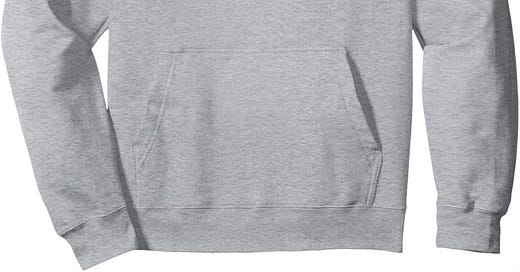



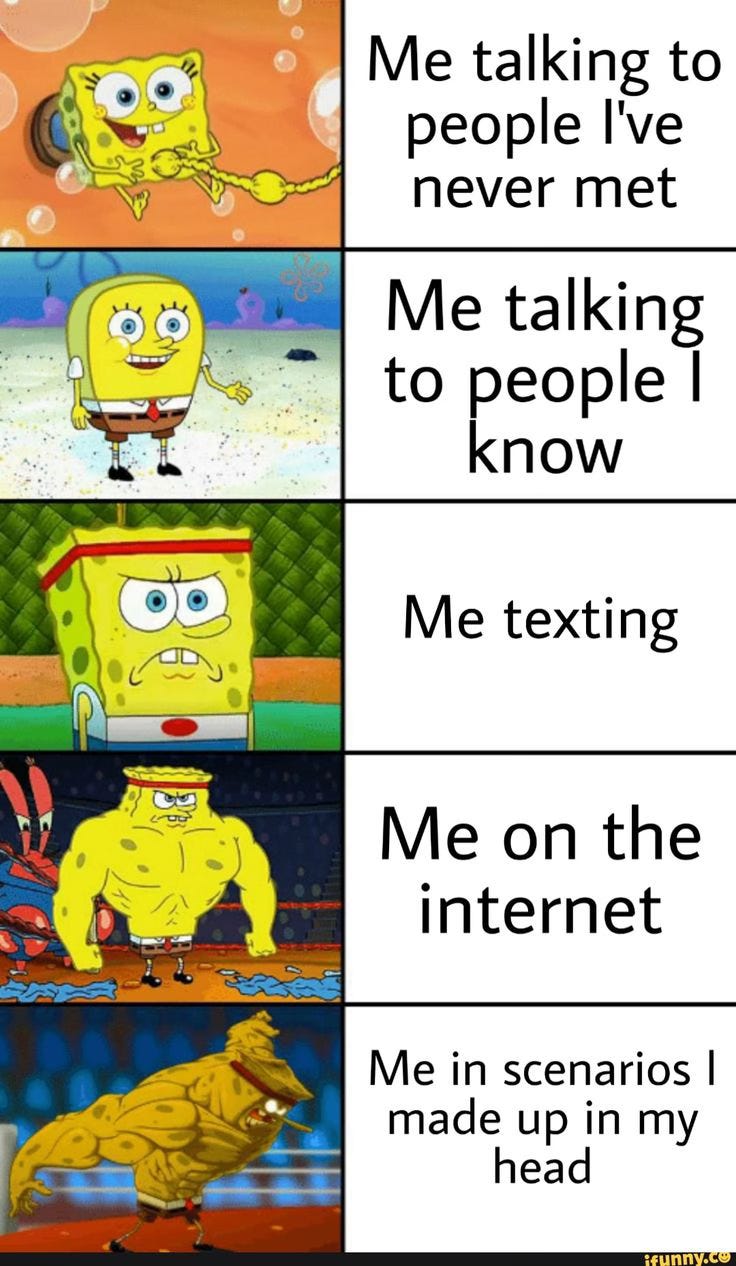
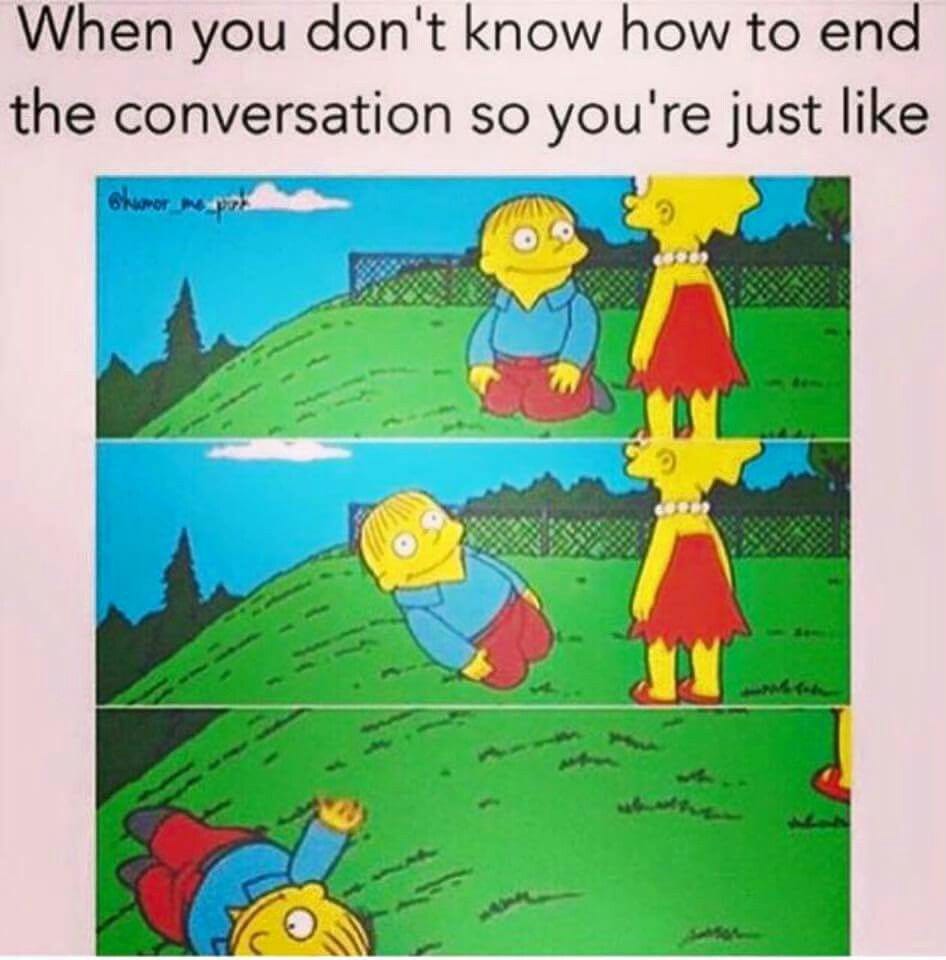
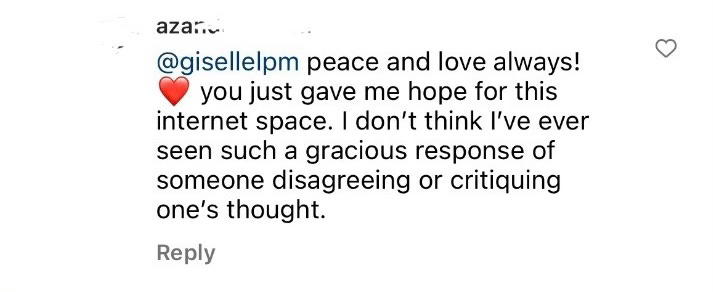
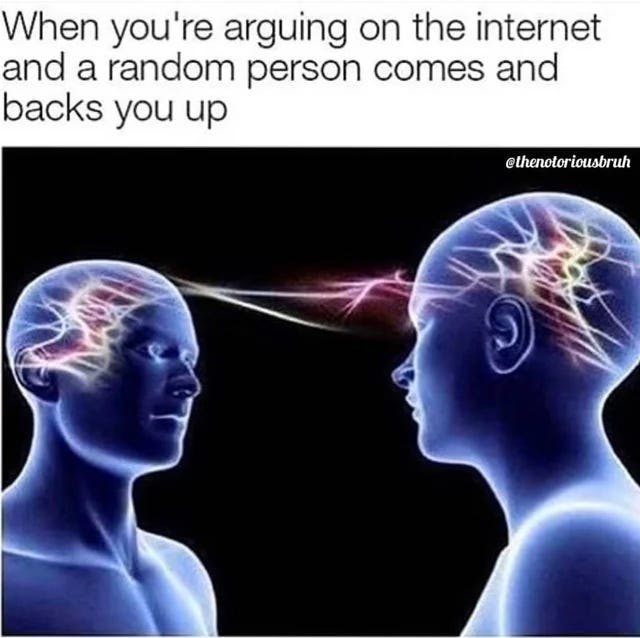
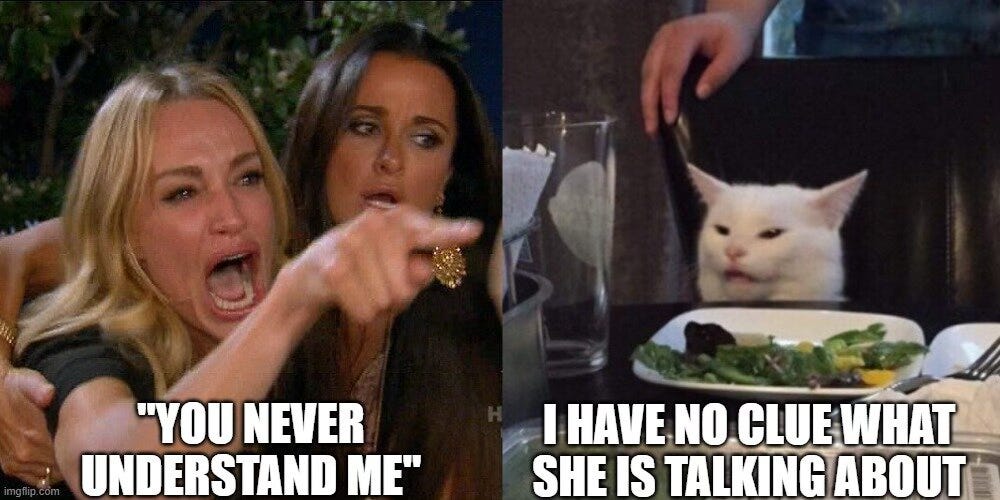
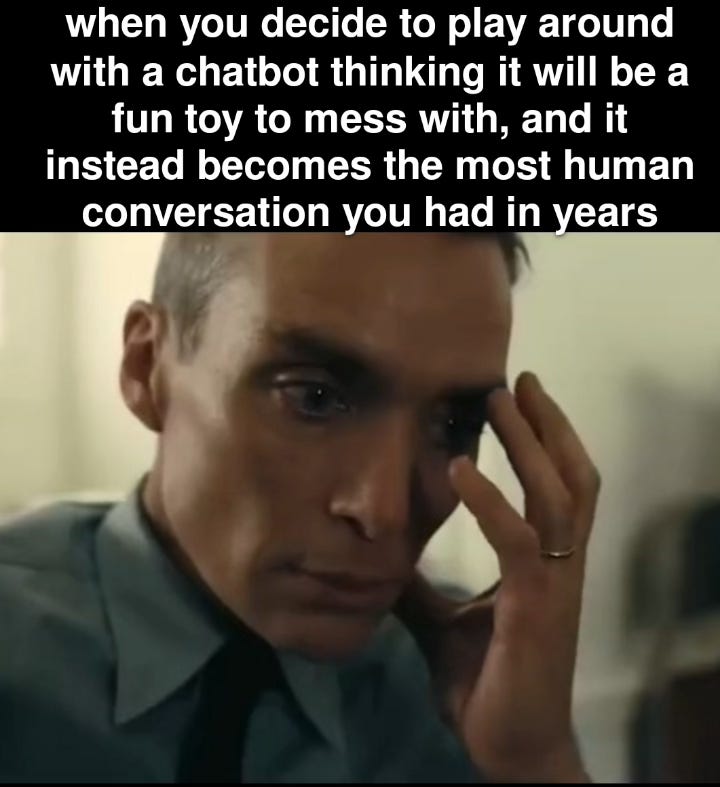
Thank you for this beautiful piece of communication ❤️ you've taught me so much about listening with care and holding loving space. I love the way you communicate ❤️
Giselle, you've done it AGAIN! As a fellow INFJ, I feel you so deeply here. Every word you put on this page had me excited to keep reading. Silence is so powerful, and communication has gone in a weird direction. Thank you for sharing this, for sharing things that have been on my heart over these past years.